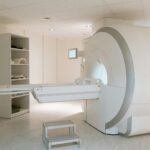In the wake of COVID-19, one of the most versatile and healthcare fields is seeing some changes to its scope of practice. Physician assistants have long been valuable parts of the healthcare system, but their range of practice potential has been somewhat limited. Much like other advanced practitioners, in most parts of the United States PAs must work under the supervision of a physician.
Like nurse practitioners, however, their scope of practice has undergone significant change over the past several months. However, allowing PAs to practice independently has become a point of contention in the healthcare community. The American Medical Association believes it would negatively affect patient care and safety, while many healthcare providers and facilities believe the opposite is true: that opening up scope of practice to more professionals would in fact improve the quality of care.
Regardless of where you stand on this debate, the way healthcare is taught and delivered is changing, and adapting to those changes is necessary for the furtherment of the healthcare system as a whole.
Here are some of the ways that the physician assistant field has changed over the past several months.
Physician Assistants Education
One of the biggest institutions to be affected by the pandemic was education, and many schools were forced to adopt virtual practices and amended curriculums. Some medical schools even fast-tracked graduation for some students to boost the COVID-19 front lines. Like most specialties, the way that physician assistants are receiving their education has been forced to change over the past several months.
While remote and virtual education has its downsides, such as the question of how students can effectively learn the necessary hands-on skills from their homes, the shift can present a number of positive opportunities and act as a catalyst for adaptability and innovation.
One clear advantage is that an upswing in remote and virtual learning could mean students that were once restricted by geographic location or other complications now have the opportunity to learn from their homes, potentially increasing enrolment and graduates. Whether virtual practices will be kept in place once the pandemic subsides is yet to be seen, but educators are not ruling out the possibility that they are here to stay.
Jacqueline S. Barnett, DHSc, MHS, PA-C, Program Director of the Physician Assistant Program at North Carolina’s Duke University, says this about her programs need to adapt: “The wonderful curriculum that we had nicely prepared to deliver is not a remote, virtual curriculum… we do not want to try to force a square into a circle, but we’re going to have to take that square curriculum and chisel it into a circle to make it fit into this new virtual paradigm.”
A Changing Scope of Practice
Since the inception of the physician assistant profession, there has been a power struggle between PAs and physicians. However, many of the regulations and restrictions are relatively outdated and it is arguable that the modern healthcare system could benefit greatly from granting PAs more autonomy.
Traditionally, physician assistants work in conjunction with other healthcare professionals, such as a supervising physician, to deliver care in a number of different subspecialties and areas of interest. The value that they can provide is significant, and they often act as supplementary care providers when facilities are experiencing shortages or high-volume periods. However, their ability to practice is often restricted to working under a supervisor at all times in 47 states, which can actually cause more congestion than progress.
Some states have made the decision to expand the scope of practice, both to combat an impending physician shortage and to provide more care to patients in need. In California, a bill that came into effect at the beginning of the year granted PAs the ability to practice independently. A similar bill was passed recently granting nurse practitioners the same freedom.
The capacity for what physician assistants are capable of is vast and varied. For example, a recent study concluded that physician assistants were well-suited to deliver mental health aid instruction; another suggested that physician assistant EMS programs could greatly supplement a strained healthcare system. These are just two of the possibilities that illuminate the wide potential of applications of the PA profession.

The COVID-19 Influence
In the height of the COVID-19 pandemic, many states lifted or relaxed the practice regulations surrounding many different healthcare fields, including advanced practitioners, in order to battle the outbreak with as many hands on deck as possible. The outcome was a positive one – without these loosened restrictions, there is no guarantee that the level of patient care would have been attainable.
The positive effect of these actions begs the question of whether or not to keep them in place, and grant physician assistants, among other advanced practitioners, permanent independent practice. This change was absolutely necessary during an upswing in need for healthcare providers, and was fairly indicative of a healthcare system that was perhaps not fully equipped to take on the crisis as is.
Opening up the scope of practice of PAs on a more permanent basis could mean a more swift mode of attack in the event that the system becomes overwhelmed again – and we can’t rule out the possibility that this crisis was a one-off event.
Radius is passionate about furthering the conversation surrounding our healthcare systems and all of the key players within it, as well as helping match deserving healthcare candidates with awesome opportunities all across the country. Visit our job board for regularly updated openings, or contact us directly at inquiries@radiusstaffingsolutions.com today to get started.











